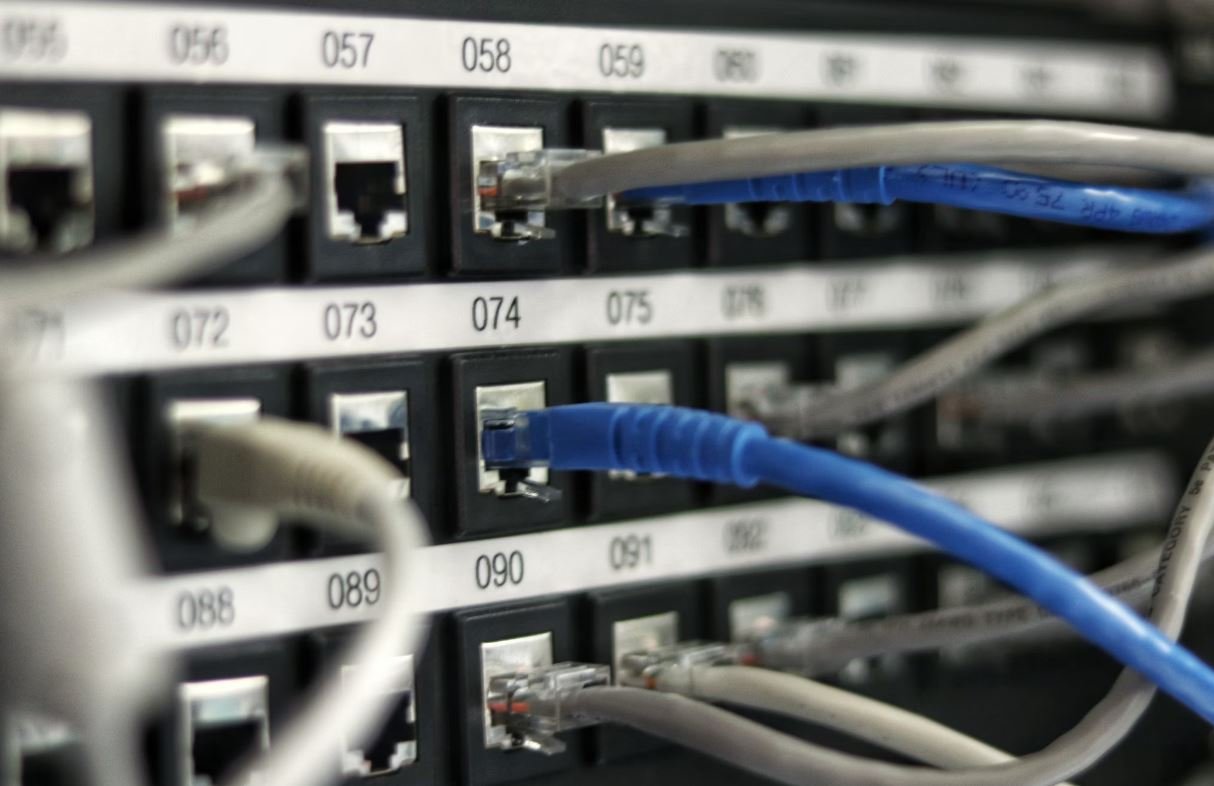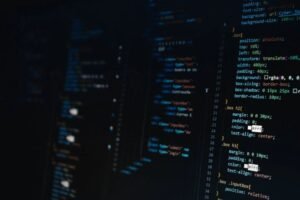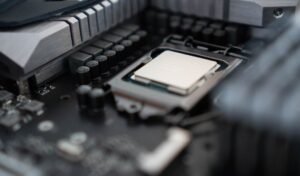Why AI Should Be Regulated
Artificial Intelligence (AI) has become an integral part of our daily lives. From voice assistants and recommendation algorithms to autonomous vehicles and facial recognition systems, AI is transforming various industries and revolutionizing the way we live. While AI advancements bring numerous benefits, there is a growing need to regulate its use to ensure ethical practices, data privacy, and mitigate potential risks. This article explores the reasons why AI should be regulated.
Key Takeaways
- AI regulation is necessary to uphold ethical standards and prevent misuse.
- Data privacy concerns must be addressed to safeguard individuals’ personal information.
- Regulation helps ensure transparency and accountability in AI systems.
- Mitigating bias and discrimination is essential for fair AI decision-making.
**AI systems have the potential to make decisions and take actions autonomously based on patterns and data. While this can bring efficiency and convenience, it also raises ethical concerns.** There have been instances where AI algorithms have been used to manipulate public opinion, compromise privacy, or perpetuate bias, leading to societal harm. Without regulation, the risk of AI being misused or implemented irresponsibly could increase significantly.
**Transparency and accountability are crucial in the development and deployment of AI systems.** As AI becomes more complex, it becomes difficult to understand how specific decisions are made or why certain outcomes occur. By implementing regulations, organizations utilizing AI will have to provide explanations and justifications for their AI-based decisions, ensuring transparency and enabling individuals to hold these systems accountable for their actions.
Regulation in AI helps address **data privacy concerns**. AI systems rely heavily on vast amounts of personal data to train and improve algorithms. However, this data can be sensitive and should be handled with care to protect individuals’ privacy. By implementing regulations, organizations are compelled to obtain proper consent, anonymize data, and establish secure storage and usage practices. This ensures that individuals’ personal information is safeguarded and used responsibly.
| Country | Regulatory Initiative |
|---|---|
| European Union | General Data Protection Regulation (GDPR) |
| United States | Algorithmic Accountability Act |
| Canada | Personal Information Protection and Electronic Documents Act (PIPEDA) |
Another crucial aspect of AI regulation is **mitigating bias and discrimination**. AI systems learn from historical data, which can contain inherent bias. If not properly regulated, AI systems can perpetuate biases and make discriminatory decisions, affecting marginalized communities and exacerbating social inequalities. Implementing regulations that require fairness measures and regular audits helps mitigate such biases, making AI decision-making more equitable.
| Benefit | Description |
|---|---|
| Ethical Use of AI | Regulation ensures that AI is used in a way that aligns with ethical principles. |
| Data Privacy Protection | Regulation safeguards individuals’ personal data from unauthorized access. |
| Algorithmic Transparency | Regulation mandates explanations for AI-based decisions, increasing transparency. |
As we continue to integrate AI into various aspects of our lives, it is crucial to establish regulations that balance innovation with ethics and the protection of individuals’ rights. **Regulating AI is a proactive approach to ensure that its benefits are maximized while minimizing potential risks.** By implementing regulations that address ethical concerns, data privacy, transparency, and bias, we can foster responsible AI development and deployment that positively impacts society.
Conclusion
Regulating AI is vital to uphold ethical standards, protect personal data, ensure transparency, and mitigate bias. By implementing appropriate regulations, we can harness the potential of AI while safeguarding individuals’ rights. As AI continues to advance, it is crucial that regulatory frameworks evolve alongside it to promote responsible and equitable usage of this game-changing technology.

Common Misconceptions
AI is Completely Autonomous
One common misconception about AI is that it is completely autonomous and operates independently without human control. While AI systems can perform complex tasks automatically, they still require human intervention and oversight.
- AI systems are designed and programmed by humans.
- Humans are responsible for training and fine-tuning AI models.
- Human intervention is essential to ensure ethical decision-making and prevent biases in AI algorithms.
AI Will Replace Humans in the Workforce
Another misconception is that AI will replace human workers in various industries, leading to widespread unemployment. While AI can automate certain tasks, it is unlikely to fully replace human workers.
- AI augments human capabilities and can automate repetitive and mundane tasks, freeing up time for more complex work.
- AI creates new job opportunities in fields like data analysis, AI programming, and AI system maintenance.
- Human creativity, critical thinking, and emotional intelligence are still highly valuable and not easily replaceable by AI.
AI is Infallible and Objective
Many people assume that AI systems are infallible and completely objective in their decision-making. However, AI is not immune to biases and can reflect human prejudices and errors.
- Biases in training data can lead to biased AI outcomes.
- AI algorithms can perpetuate and amplify existing societal biases.
- Human oversight is necessary to regularly evaluate and address biases in AI systems.
Regulating AI Stifles Innovation
Some argue that regulating AI will hinder innovation and slow down progress in the field. However, regulating AI is crucial to ensure its responsible and ethical use.
- Regulation promotes public trust in AI technologies.
- Ethical guidelines and regulations encourage innovation that aligns with societal values and prevents potential harm.
- Regulation drives the development of safer and more reliable AI systems.
AI Will Turn Against Humanity
There is a fear among some individuals that AI will eventually become self-aware and turn against humanity, leading to a dystopian future. However, this notion is primarily seen in science fiction and not based on current technological capabilities.
- AI systems lack consciousness and do not possess intentions or desires.
- AI is created to serve human needs and benefit society.
- Responsible development and regulation ensure AI systems remain aligned with human values and prevent any potential harm.

Table: Major Players in AI Industry
The table below showcases some of the major players in the AI industry, including tech giants, research institutions, and start-ups. These companies have played a significant role in developing and advancing artificial intelligence technologies.
| Company | Country | Focus Area |
|---|---|---|
| United States | Machine Learning | |
| Microsoft | United States | Natural Language Processing |
| IBM | United States | Cognitive Computing |
| OpenAI | United States | AI Research |
| Amazon | United States | Cloud AI Services |
| Baidu | China | Speech Recognition |
| United States | Deep Learning | |
| DeepMind | United Kingdom | Reinforcement Learning |
| Tesla | United States | Autonomous Vehicles |
| Samsung | South Korea | Computer Vision |
Table: AI Applications in Different Fields
The following table highlights diverse fields where artificial intelligence applications have shown immense potential and impact. From healthcare to finance, AI technologies have revolutionized various industries.
| Industry | AI Application |
|---|---|
| Healthcare | Medical Diagnosis |
| Finance | Algorithmic Trading |
| E-commerce | Personalized Recommendations |
| Manufacturing | Quality Control |
| Transportation | Autonomous Vehicles |
| Entertainment | Content Recommendations |
| Education | Intelligent Tutoring Systems |
| Agriculture | Precision Farming |
| Energy | Smart Grid Management |
| Security | Facial Recognition |
Table: Rise in AI Investment
The increasing interest in AI technology is reflected in the surge of investment in the field. The table below shows the global investment in artificial intelligence over the past five years.
| Year | AI Investment (in billions USD) |
|---|---|
| 2016 | 3.2 |
| 2017 | 12.4 |
| 2018 | 25.9 |
| 2019 | 37.5 |
| 2020 | 71.5 |
Table: AI Regulations Across Countries
The table below showcases the different approaches to AI regulation across various countries. It highlights the measures taken to ensure the responsible and ethical use of artificial intelligence.
| Country | AI Regulation |
|---|---|
| United States | No Federal Regulation |
| European Union | General Data Protection Regulation (GDPR) |
| China | New Generation AI Development Plan |
| Canada | Guidelines for Ethical AI |
| Australia | National AI Ethics Framework |
Table: Benefits and Challenges of AI Regulation
The table below highlights both the benefits and challenges associated with regulating artificial intelligence. While regulation can ensure responsible use and protect against potential risks, it also poses certain obstacles.
| Benefits | Challenges |
|---|---|
| Ensures Ethical Use | Slows Down Innovation |
| Addresses Privacy Concerns | Differentiate International Standards |
| Protects Against Bias and Discrimination | Difficult to Enforce Globally |
| Builds Trust with Users | Adapting to Rapidly Evolving Technology |
Table: AI Impact on Jobs
The impact of AI on jobs is a significant concern. The table below demonstrates the potential effects of AI adoption on employment in different sectors.
| Sector | Job Loss Estimate (by 2030) |
|---|---|
| Manufacturing | 20 million |
| Transportation | 5 million |
| Retail | 4.5 million |
| Customer Service | 2 million |
| Finance | 1.5 million |
Table: Public Opinion on AI Regulation
The table below showcases the public opinion regarding the regulation of AI, as determined by various surveys and studies. It illustrates the sentiment and concerns of individuals regarding AI governance.
| Opinion | Percentage of Respondents |
|---|---|
| Support Regulation | 78% |
| Concerned about Privacy | 67% |
| Fear Job Loss | 53% |
| Believe AI Needs Policies | 85% |
Table: Potential Risks of Unregulated AI
The table below lists some of the potential risks associated with the unregulated development and deployment of artificial intelligence technologies. It emphasizes the need for regulation to mitigate these risks.
| Risks |
|---|
| Job Displacement |
| Loss of Privacy |
| Bias and Discrimination |
| Autonomous Weapons |
| Unethical AI Use |
Table: AI Regulatory Efforts
The table below highlights some of the ongoing international efforts and initiatives aimed at regulating artificial intelligence to ensure ethical and responsible use.
| Initiative | Description |
|---|---|
| AI Global Governance Commission | Focuses on global coordination and policy development. |
| IEEE Global Initiative | Develops standards and guides for AI ethics. |
| OECD Principles on AI | Provides guidelines for AI policy and governance. |
| World Economic Forum | Brings together stakeholders to shape AI governance. |
Table: Proposed AI Regulatory Principles
The table below presents some of the suggested AI regulatory principles from experts and organizations worldwide, emphasizing the key aspects that should be considered in the development of regulatory frameworks.
| Principle | Description |
|---|---|
| Transparency | AI systems should be explainable and accountable. |
| Privacy | Respecting and protecting individuals’ data and privacy. |
| Fairness | Avoiding bias and discrimination in AI applications. |
| Human Oversight | Ensuring human control and decision-making over AI systems. |
| Safety | Mitigating risks and ensuring AI safety measures. |
In a world increasingly influenced by artificial intelligence, it becomes crucial to establish regulations to govern its development and usage. The tables provided highlight different aspects of AI, ranging from major players in the industry and its impacts on various fields to public sentiment, potential risks, and proposed regulatory efforts. These illustrate the need for AI regulation to ensure responsible and ethical implementation, address public concerns, and navigate the challenges that arise from this transformative technology.
Why AI Should Be Regulated – Frequently Asked Questions
What is AI?
AI, or Artificial Intelligence, refers to the development of computer systems capable of performing tasks that would typically require human intelligence. It involves creating machines that can learn and adapt based on experience and data.
Why should AI be regulated?
AI should be regulated to ensure that it is developed and used ethically, and that potential risks and negative impacts are managed effectively. Regulation can help prevent misuse or abuse of AI technology and protect individuals and society.
What are the potential risks of AI?
Some potential risks of AI include job displacement, privacy concerns, biases in decision-making algorithms, security vulnerabilities, and the possibility of AI systems being used for malicious purposes.
How can regulation address the risks associated with AI?
Regulation can establish guidelines and standards that govern the development, deployment, and use of AI systems. It can ensure transparency, accountability, and fairness in AI algorithms and decision-making processes. Regulation can also address concerns related to privacy, security, and potential misuse of AI technology.
Who should be responsible for regulating AI?
The responsibility for regulating AI should involve collaboration between governments, industry experts, researchers, policymakers, and other stakeholders. It should involve a multidisciplinary approach to ensure comprehensive regulation that addresses both technological and ethical considerations.
Does regulation hinder AI innovation?
Regulation does not necessarily hinder AI innovation. Rather, it can foster responsible and sustainable innovation by providing clear guidelines and frameworks. Appropriate regulation can also inspire public trust in AI systems, which is crucial for their widespread adoption.
What are some existing regulations for AI?
Currently, regulations for AI vary across different domains and jurisdictions. Some existing regulations include privacy laws, data protection regulations (such as GDPR), guidelines for autonomous vehicles, ethical frameworks, and standards for AI in healthcare and finance.
How can AI regulation be effectively enforced?
Effective enforcement of AI regulation requires a combination of mechanisms such as audits, inspections, certification processes, and penalties for non-compliance. Collaboration between regulatory bodies, industry organizations, and watchdog groups can also play a crucial role in monitoring and enforcing AI regulations.
How can individuals contribute to AI regulation?
Individuals can contribute to AI regulation by staying informed about AI developments, engaging in discussions and debates, advocating for transparency, and providing feedback to regulatory bodies and policymakers. They can also support organizations and initiatives dedicated to promoting responsible AI and raising awareness about its implications.
What are the potential benefits of regulated AI?
Regulated AI can offer numerous benefits such as increased trust and acceptance of AI systems, protection of individual rights and privacy, reduced risks of unfair biases in decision-making, improved cybersecurity, and enhanced socio-economic inclusion by mitigating job displacement through proactive measures.





